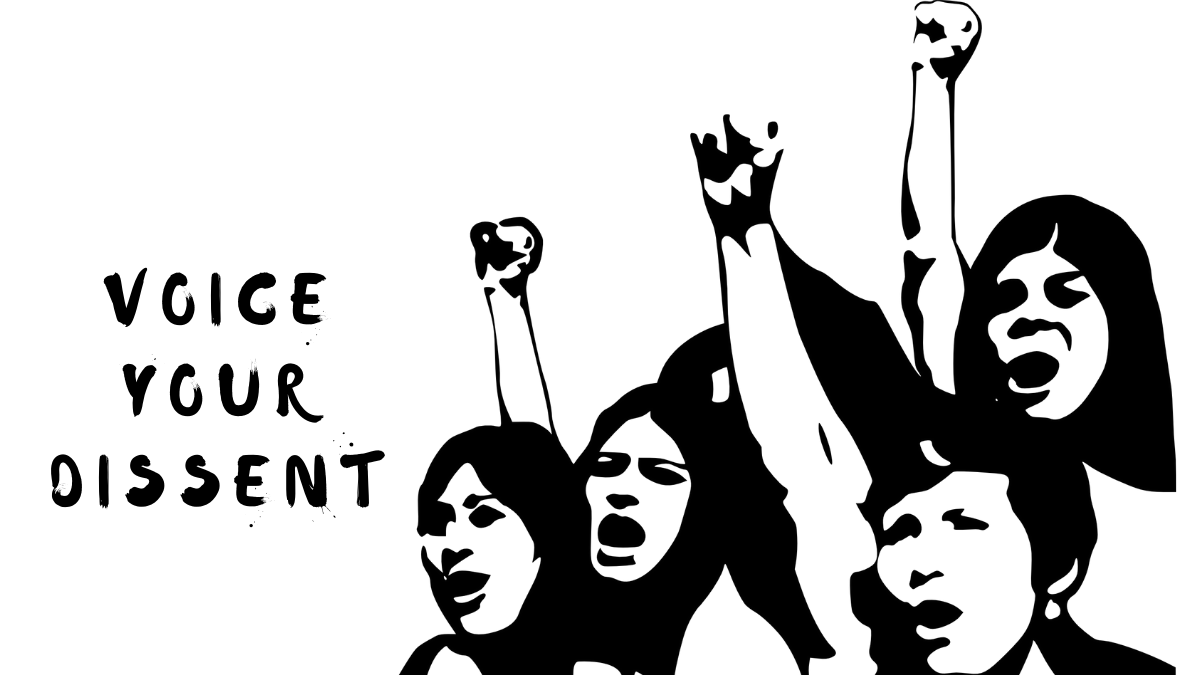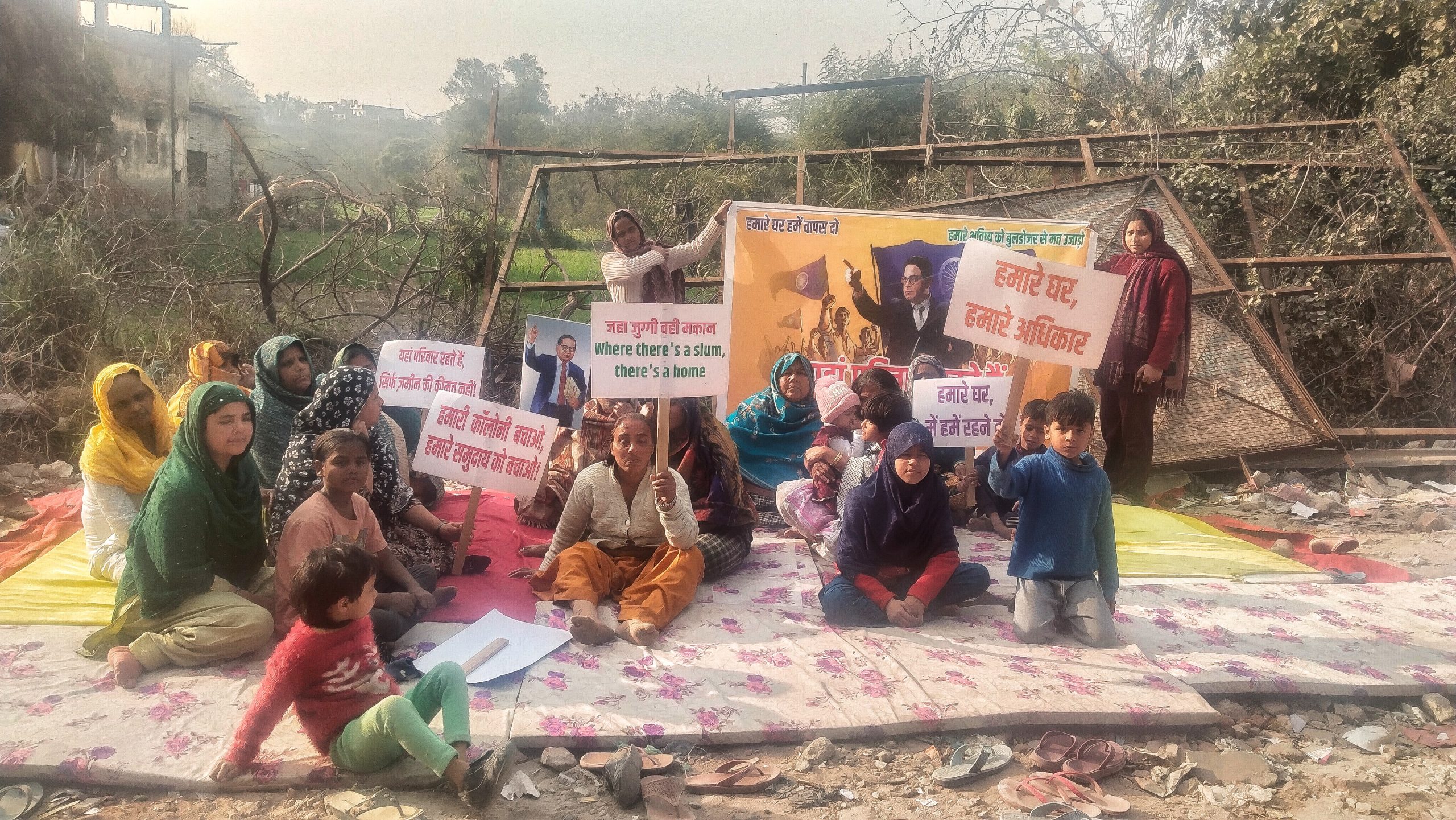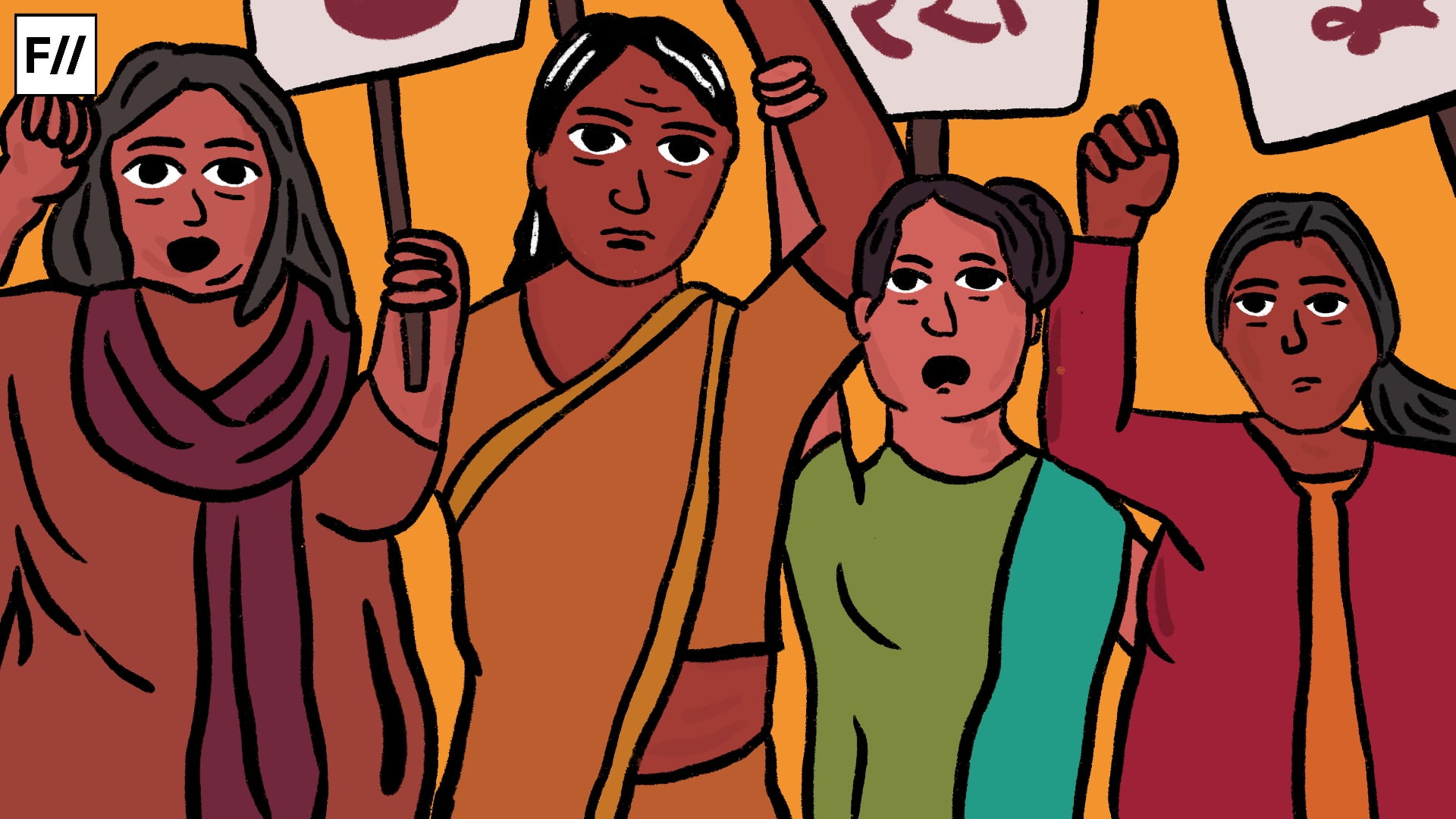Editor’s Note: This month, that is January 2020, FII’s #MoodOfTheMonth is Resistance and Hope, where we invite various articles on people’s thoughts on the topic- what resistance means to you, ways in which you resist oppressive structures and norms in your everyday life, your sources of hope and courage, etc. If you’d like to share your story, email us at maduli@feminisminindia.com.
Growing up as a shy girl was not easy. I was bullied by my family, my schoolmates, and later by men, colleagues, and bosses. As a child, I cried and cowered in fear; my act of resistance was to make myself invisible, to shrink into myself, to make myself small. All the better to not be seen. As a grown-up, resistance meant walking away as verbalised disagreement. Confrontations brought with them their own streams of abuse.
Confronting Possibilities
Confrontations were ugly, messy, and painful. If I called out an issue, I would be told I was throwing a tantrum. I was made out to be the problem and the problem raised would be swept away. Voicing disagreements would be attributed to separated parents or being unmarried and not having a child as someone my age ought to. At its most benign, it would be dismissed as a misunderstanding. Intimidation was layered. At workplaces for instance, the threat of losing jobs or being shunned hung over my neck like an axe. When you are alone and barely making ends meet, raising your voice can turn into a strangulating process, that constant need to voice and knowing the voice will be squashed without mercy.
With each leaving, I learned what it means to stand up for myself and how people respond to it. Voicing your dissent or disagreement does not bring with it liberation, approval, relief or agreement. I am learning to stop looking for that, but to stay and to speak up and to stand my ground regardless, however much the ground quakes. I stopped labeling myself as a victim because a victim by her very nature is helpless and a bully, powerful. I don’t want to feed that narrative to myself; culture and society have done a lot of that already.
What’s playing out in the larger politicalscape in India – the fascism and how dissent is being treated with intimidation, denial, violence, and gaslighting – is what abusive relationships are made of.
Growing as a Feminist
Feminism was never a choice. Non-conformism too was never a choice. It is who I am. As someone who chose to cut all ties with a father as he brought no value or respect to the relationship. As someone who chose to stay single over marrying or being in an unfulfilling relationship for the status quo. As someone who moved out to live on her own instead of being relegated to a spinster caretaker role. As someone who decided not to have a child because that is what my gut told me. As someone who ‘created a scene’ when a diagnostic center’s front office refused to bill me for a pap smear because I was unmarried (and it could mean popping the cherry and make it difficult to find a husband), never mind that at 28, I might be sexually active and I had a family history of cancer. As someone who questions about giving her parents’ name on forms because I am not guardian-ed by anyone. These are my small, daily acts of braveness. I know of those braver but I do what I can do. Braveness needn’t always be big, loud, and seen.
Cultivating the Habit of Dissent
What’s playing out in the larger politicalscape in India – the fascism and how dissent is being treated with intimidation, denial, violence, and gaslighting – is what abusive relationships are made of. While that needs to be combated, it is also how we deal with everyday transgressions that count. Do we speak up, walk away, or do we stay and make excuses and drown ourselves with denial normalizing the abuse, the bullying, and the gaslighting? What we encounter in everyday life is a microcosm of what’s happening on a massive scale where stakes are not just an individual but millions.
Also Read: The Resilient Women Of Shaheen Bagh Dissent On The Streets
Dissent should be made a habit and not the bad guy, unlike unquestioning obedience (its meeker-in-appearance and far more dangerous cousin).
Dissent has many negative connotations as disagreements especially with those in authoritative positions where there’s a power imbalance make you disagreeable, difficult, stubborn, inflexible, etc. Making a fuss (yes, that is what it’s called) is wrong. Unless you are influential, that is, you can sway the opinions of your peers or the top brass. Alone, you’ll be taken down. Dissent should be made a habit and not the bad guy, unlike unquestioning obedience (its meeker-in-appearance and far more dangerous cousin). How do we practice dissent in everyday life? How do we approach dissent in everyday life? How do we respond to dissent in everyday life? I keep asking, I keep answering.
Standing Still, Standing Tall
I swam downstream too. I conformed to expectations. But upstream felt authentic. Although it was difficult and strewn with jibes and judgments, but being strong has a way of holding you safe. It becomes your anchor. However, while the fight/flight stance makes for a good story, it can be an exhausting one too. I’ve been lucky to have a spiritual path that nourishes me, that helps me untangle the sticky bits and to keep returning to the stillness. I find solace and shelter in cats, art, and literature created by those who have pushed against oppression, those who have questioned the norm, those who have chosen to navigate through the complex humanscape allowing light to fall on the darkest and most hidden corners. Music lifts me up and books give latitude to my thoughts and feelings.
Also Read: Dissent Against Rape Prompted In The Expulsion Of Sister Lucy Kalappura
At a café, I overheard two conversations in the last week. Two different women, both fighting back workplace sexism and bullying. There is hope there, in seeing more and more people refusing to be quiet about issues and instead calling them out. There is hope in a wave of resistance born of courage and equanimity that does not need you to be pushed to the corner to stand up, where standing up and speaking up is natural and a way of honouring rather than rescuing yourself.
Featured Image Credits: Pixabay




